A Walk Through Hell’s Kitchen With Alexander Chee
"In a way, Hell’s Kitchen is New York City’s backstage."
“I’ll buzz you up.”
I’m standing outside of Alexander Chee’s apartment after having made my way into the Manhattan neighborhood of Hell’s Kitchen by walking up 10th Avenue. The day is hot and when I enter Chee’s apartment he hands me a glass of water, which I barely have time to appreciate before I swallow it in a string of tremendous gulps.
As I place my empty glass in the tiny kitchen sink, I take in my surroundings. The place is small, a classic New York City apartment that is bursting with the belongings of people who have lived here for a long time. There are two chandeliers, which doesn’t surprise me. A small piano in the living room, and the walls are painted bright, bold colors. Which is to say the walls that I can see, as most of the space is covered in books.
I turn to Chee. “This is like a movie set of what I imagined a writer or artist’s apartment in New York City would look like when I was a kid.”
“That’s funny. Dustin, my husband, has actually shot movies here,” Chee replies as he laces up his shoes. He’s been walking more himself, he tells me. He looks strong.
Our walk will take us all over Hell’s Kitchen, down by the Hudson river, and past men boxing near the baseball diamond at DeWitt Clinton Park. The whole time Chee will point out landmarks to me, or places he has personal history—including the bar where he had his first book party—throughout the neighborhood. But first we have to get started.
“Where to?” I ask.
“Why don’t I show you the garden.”
Isaac: Can you tell us a little bit about where we are?
Alexander Chee: We’re in the Clinton Community Garden— created in the late ‘70s— when residents of West 48th Street cleared out an abandoned lot and began planting fruits and vegetables, flowers and herbs, with the help of Operation Green Thumb. It’s been here ever since. People grow food here, in lots in the back. And up front there are benches, a lawn, roses, and so many other flowers. That’s a fig tree over there, starting to show fruit. It's really wonderful to come here.
This garden is one of those places—and there are so many in the city—where once you’re inside, it doesn’t really feel like you’re in New York. But—to me—that is a quintessential New York City experience. Being in a place inside the city that makes you feel like you’re not inside the city.
Dustin loves this garden. He’s lived in the apartment we now share—just around the corner from here—for about 30 years. Dustin was the first man to give me roses that he grew himself, and he grew them here in a lot in this garden.
But let’s walk around the neighborhood a little bit. Do you know the other names for Hell’s Kitchen?
I: I do not.
AC: Some people like to call it “the Dance Belt”— so many dancers and actors lived over here because of the neighborhood’s proximity to Broadway. Many still do, and there’s still signs of that throughout the area. There’s artist housing—a place down on 43rd where artists can live and pay rent based on their income—and there’s St. Malachy’s, also known as The Actors' Chapel.
[Editor’s Note: I did a little research and discovered that the chimes of St. Malachy’s used to play "There's No Business Like Show Business."]
Hell’s Kitchen is also where you’ll find many of the stables for the horses that pull carriages in Central Park. Many of the vendor carts for hotdogs and pretzels are stored over here as well. So in the morning you’ll often see everybody taking out their horses or vendor carts and preparing for the day. Many of the things that tourists associate with New York City, this is where they’re kept.
In a way, Hell’s Kitchen is New York’s backstage.
I: Hell’s Kitchen is also, obviously, a very gay neighborhood, correct?
AC: Yes, Isaac. Very good. Especially in the last 20, 25 years or so. But I remember visiting this neighborhood in the late ‘90s and early 2000s. There was this gay bar, Stella’s, that was famous at the time. Well, famous or notorious, depending on how you look at it. It was for a friend’s birthday and at the end of the night I remember we tipped the dancers like we were insulating them for the winter, and when the cab pulled to a stop in front of my friend’s place he simply slid down his seat and into the seat well. Folding on top of himself.
I: Like he had become liquid. He turned into a puddle.
AC: Exactly. My first introduction to the Hell’s Kitchen scene. But we also went to Cat's, and Cleo's.
It's also very common to see gay pornstars in this neighborhood. Boomer Banks and I are both regulars at my local deli, and I see Rafael Alencar around too. Also go-go dancers. Recently, at that same deli, I saw a young man paying in one dollar bills. And I was like, “Why does he have so many single—ohhhhh.” I had answered my own question before I finished the thought.
I: There’s a lot of discussion about the shrinking of queer spaces, but gay bars and clubs in this neighborhood continue to thrive. Why do you think that is?
AC: I think drag is saving gay bars. Now, whether all of those bars deserve the drag queens that are saving them? That’s another story. But yes, the popularity of drag is certainly a part of it. Also, people love a go-go boy. You can’t really get that experience on Grindr.
The younger generation has learned a lot about community and is teaching it to the older ones, too. And that’s a beautiful tradition—taking care of each other. Plus, of course, you go out to see and be seen. And while that means something different in 2021 than it did in 1991, the validation of somebody smiling at you in the outfit you picked out after changing your clothes all afternoon, though, that’s special no matter what year it is.
I: What were you doing here then, in New York City? When you were going to Stella’s.
AC: I first moved to New York after spending some time in San Francisco. And then I left for a couple of years to go to Iowa, for the Writer's Workshop, and then returned in 1994. After my MFA I mainly worked on my first novel and wandered the city’s magazine stands and bookstores, reading magazines, learning how I could write for them. This was before Barnes & Noble or Amazon. So you would go to these stores and look at different publications, trying to figure out who you wanted to write for.
I: What were you doing for money?
AC: I met a… friend for a night, shall we say? He was a catering waiter. And I needed money. So he said, “You should be a cater waiter.” He trained me over the next few days and I got a tuxedo—I took his advice and spent the extra money to get the tuxedo tailored—and I ended up getting gigs. That’s how I became a cater waiter for William F. Buckley.
I: No shit?
AC: No shit. Eventually catering led to me becoming a full-time waiter. I worked at an Italian restaurant near Lincoln Center called Sfuzzi, and I worked at Morton's, a steakhouse on 45th and Fifth Avenue.
At the time, I had applied for some publishing jobs, but never got one. Sometimes the people interviewing me would say, “You don’t want to do this.” I had worked on the first OutRight conference in San Francisco—the first LGBTQ literary writers conference—where I'd met writers who made me want to move to New York City in the first place. To be a part of the literary community here, which, it should be said, is different than the publishing industry that’s here. Sometimes they feed off each other, but they’re different.
Anyhow, I had wanted to get a job in book publishing but hadn’t. And I remember putting plates down at a lunch for someone who was interviewing for a publishing job—this was the lunch where they were getting offered the job—and the number that the person hiring them mentioned… well, I made $20,000 a year more than that. So I said to myself, “Maybe I don’t want to do that after all.”
But it was still bittersweet.
I: Can I ask how old you were when you were waiting tables?
AC: Late 20s, early 30s. I waited tables up until the early 2000s.
I: Which is when your first book, Edinburgh, comes out. Is that when you quit waiting tables?
AC: Not immediately, but not long thereafter. That’s when I started to teach. Different places around the city. Picking up different teaching gigs—teaching at my alma mater, Wesleyan. So that took me out of the waiting tables game and into the teaching game.
I: Which you’ve been doing ever since.
AC: I like to call it the I-91 circuit. Amherst College. Wesleyan. Princeton. Columbia. Sarah Lawrence. UT Austin. University of Iowa. University of Leipzig. Goddard College. Now Dartmouth. I’m sure I’m forgetting some. But yeah, waiting tables in the 90s slowly turned into publishing and teaching in the 2000s.
Real quick, I want to say. This whole area of Hell's Kitchen has changed a lot in the last ten years. The restaurants, the car dealerships, everything has changed. But that deli over there has been here the whole fucking time.
I: The Pier Market Place deli holds on to the dream.
AC: Everybody needs a place to get a beer and a sandwich.
I: I know when you’re teaching you live up by Dartmouth, but you and Dustin still have his apartment here in the city. How long have you lived in Hell’s Kitchen?
AC: As long as I’ve lived with Dustin, for about a decade now. On our second date, there was a blizzard where we were snowed in together for something like five days and we’ve been together ever since. When my job at Amherst finished up, I had planned to move back to New York anyway, and when I said I was going to look for an apartment, he said, “No you’re not.” Hell’s Kitchen became where I would come back to after my visiting writer jobs at those other schools. And where I finished writing my second novel and my essay collection.
I: What do you love about Hell’s Kitchen?
AC: You know, at first, I loved that I would never see any writers here. Of course, there are writers who live in the neighborhood—and there have been others who have moved here over the years—but I do like how protected from that scene Hell’s Kitchen can feel, compared to when I lived in Brooklyn in the ‘90s.
There’s still a personality to it, also. I like that our Dominican landlord also has a butcher shop, for example. And he only hires other Dominican people from the neighborhood to do work for him in his buildings. At seven o’clock you’ll see what I call the professionally beautiful men of Hell’s Kitchen on their way to work, going to Broadway for call time, you know? And there will be these incredible groups of women on the street who will playfully catcall these ridiculously handsome men. It’s so funny and so lovely.
If you live here long enough, you watch as, say, the kid at your local bodega—ours is owned by a Yemeni family—goes from the child who opens the door for you into the kid stocking the shelves into the teenager working the register, into the manager who is calling the shots. There’s still a scrappiness to the area even though it has also become Madison Avenue 2.0, for digital ad agencies and creative agencies.
But it’s not all joyful. This was also the neighborhood where some of the most visible anti-Asian attacks occurred last year.
I: Really?
AC: The attack where a woman was repeatedly kicked in the head was a couple of blocks from here. That broke my heart in any number of ways, but it also felt incredibly close. There have always been fights in the neighborhood, but that was so upsetting—that level of utter viciousness.
I: The explosion of anti-Asian racism—the attacks, the fear mongering—this past year, even right here in your beloved neighborhood. How did that feel?
AC: It was really hard because I was experiencing this very atavistic desire for revenge, not equity. So I had to fight that, in myself. Knowing the responsibility that I had to myself, and others, to the work, to my role as a teacher. I had to fight that impulse because I knew it wasn’t going to do anybody any good.
I: You were feeling anger.
AC: Not simply anger. Rage.
There was also a temptation to write something about it. Yet I feel that something the pandemic really made me aware of was both the power of what I do as a writer, but also the limits of it.
Which is to say, when I thought about writing about everything my first reaction was, “Oh, you’re going to homework your way out of this?” When everyone kept saying, “Do the reading,” or recommending books, I kept feeling like that. “We’re going to homework our way out of this? That’s what we’re going to do?”
That said, an informed community response does require an informed community. Still, it didn’t feel like reading or writing really matched the level of urgency and anger that I felt.
Part of what I did was simply giving money to mutual aid organizations, finding Asian and Asian American initiatives that needed support and making donations. Whether it was community housing, or financial support for Asian and Asian American sex workers, or simply somebody’s GoFundMe. And that can, on the one hand, feel like you’re not doing enough, but for somebody who doesn't have access to those resources to suddenly have it? It feels like a lot to them. In general the pandemic asked me to ask myself, “What, out of what you’re already doing, can you do more of?” And to then do that.
I: Do you feel like you’ve processed your rage, or do you feel like that’s still happening?
AC: We’re still in it. So I’m still trying to process it. There’s still rage.
One of the groups I’m proud to have supported is Soar Over Hate, which gives self defense lessons—and also supplies self defense weapons—to Asians and Asian Americans, especially seniors. They also provide mental health services. I discovered that group through my friends at Bubble T, a queer Asian monthly gathering in Brooklyn. I love those folks and think the world of what they’ve been able to create.
[Editor’s note: You can learn more about Bubble T in this 2017 piece from New York Magazine.]
I: Why is mentorship important to you?
AC: I used to think of it as one-sided, but I recently wrote an essay about E.M. Forster that really changed the way I look at mentorship. I saw how Forster’s friendship with Christopher Isherwood became a mentorship that went both ways—where he was a mentor to Isherwood and Isherwood was a mentor to him. It was a very profound friendship for both of them.
So that got me thinking. What mentorship really comes down to are those conversations you have with people. Those relationships you develop with people.
I: Where it’s a two-way street.
AC: Yes. I started mentoring people even before I’d published my first novel, teaching writing. I didn’t realize how much I still needed mentoring myself until recently, and how much I need to step back from teaching. Right now I’m at a place where I’m trying to figure out how much more teaching I’m going to do, because I know what the next five books are. And I need to write them. I need to focus on my work.
I: Because you do, you give a lot of your time away. Your attention. You obviously teach at Dartmouth and have taught at many colleges, but you’re also very encouraging of so many people. And that takes a lot of effort. I hope you know that everyone recognizes that, and is very understanding of that.
AC: Thank you. I appreciate that.
I: Who was there for you, coming up? Who were your mentors?
AC: Kit Reed. Deborah Eisenberg. Marilynne Robinson. James Alan McPherson. But I always felt so bad asking for any of their time and attention. Kit Reed—for example—I didn't realize she was trying to mentor me at first. I simply wondered, “Why is she always writing me with these questions? Why do I get so much email from her?” I could probably do a book made up entirely of the emails I received from Kit Reed. Advice that I didn't always take, but that was there for me. Which I’m eternally grateful for. I'd be going through Wesleyan, for this or that reason, and I'd stop off at her house. She'd make me tuna melts on English muffins in her toaster oven. Give me an iced tea and we’d talk about what's going on.
James Alan McPherson first introduced me to the idea that who you mentor, that's how you change the culture. And that's how you change the world. That’s something I always try to keep in mind.
I: You’ve seen the world change a lot. I mean, we all have, but I’m thinking especially in terms of queer literature. It’s more accepted now—it’s always existed, of course—but it’s more mainstream than, say, when you started writing. What does that change mean to you?
AC: Brandon Taylor. Garth Greenwell. T Kira Madden. Kristen Arnett. Douglas Stuart. Yanyi. Bryan Washington. Ocean Vuong. James Han Mattson—whose novel Reprieve comes out next week. More writers than I can name, really. What does that mean to me? The last few years have been like seeing a world I've waited for my entire life finally come into existence.
I: So the world isn’t returning to normal, but it ain’t as rough as it was last year. What does this next year look like for you?
AC: This is my first sabbatical year of my career, in 25 years of teaching.
I: First?
AC: Yes. Thanks to a Guggenheim Fellowship and a USA Fellowship.
I: After all those years teaching at all those different universities—doing the I-91 circuit, as you put it—your first sabbatical. What are you going to do with your year?
AC: I have research to do, in New York, Boston and Seoul, and then writing to do. But the great thing is I don't have to know more than that. The only thing I’m interested in at the moment is learning who I am now. Who I am after all of this. Other than that? We’ll see.
Chee and I have taken a break from walking, and are now across a table from one another, drinking cocktails—same as we did when we first met, about a decade ago. The afternoon has slowly morphed into evening, but the air is still warm. Summer hasn’t given up yet.
“Do you know this trick, when you’re hot?” Chee holds his drink up against his neck. “Put a cold glass to your neck and it’ll cool you down, because of your carotid artery.”
I didn’t know the trick, but I do now, so I hold my drink against my neck, the condensation on the glass wetting my skin.
“It works with your wrists, too,” Chee says, placing his drink down on the table and against his two wrists—teaching me something new as easily as breathing.
I think back to our first meeting. He had written for an online magazine I edited, and I remember being nervous to finally connect with him in person after so many emails. But right away—sitting there, a table and two drinks between us—I remember the feeling of familiarity that slowly overtook my nervousness. Chee spoke slowly, and deliberately, but he also asked me questions and gave me time to find my answers. By the time the check had arrived, it was clear that we were going to be friends.
I lean back in my chair, lost in my memories. When I return to the present I see that Chee is smiling at me.
“Turn your recorder off,” he says, his eyes sparkling to the point of mischievousness. “I want to tell you a secret.”




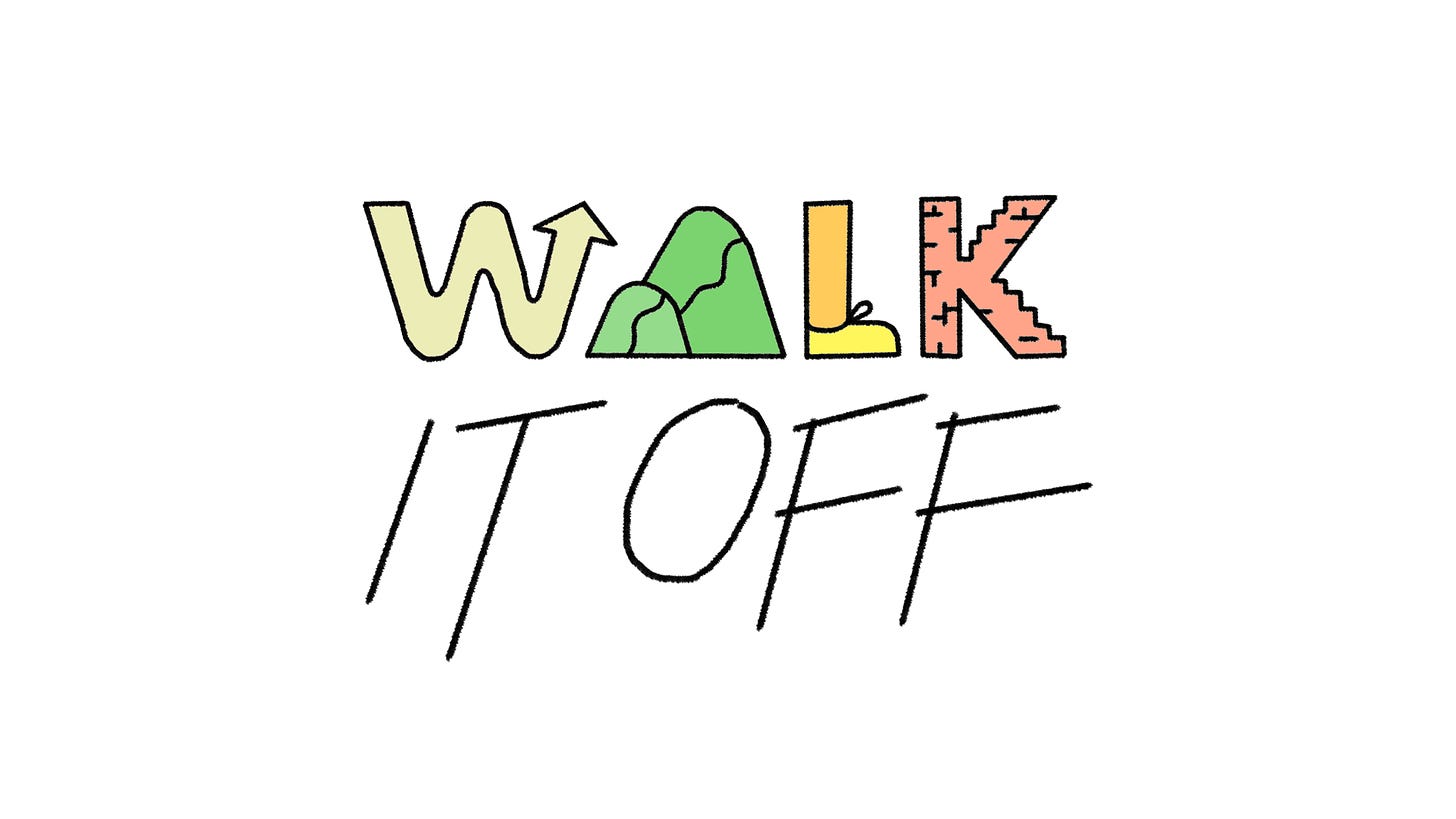
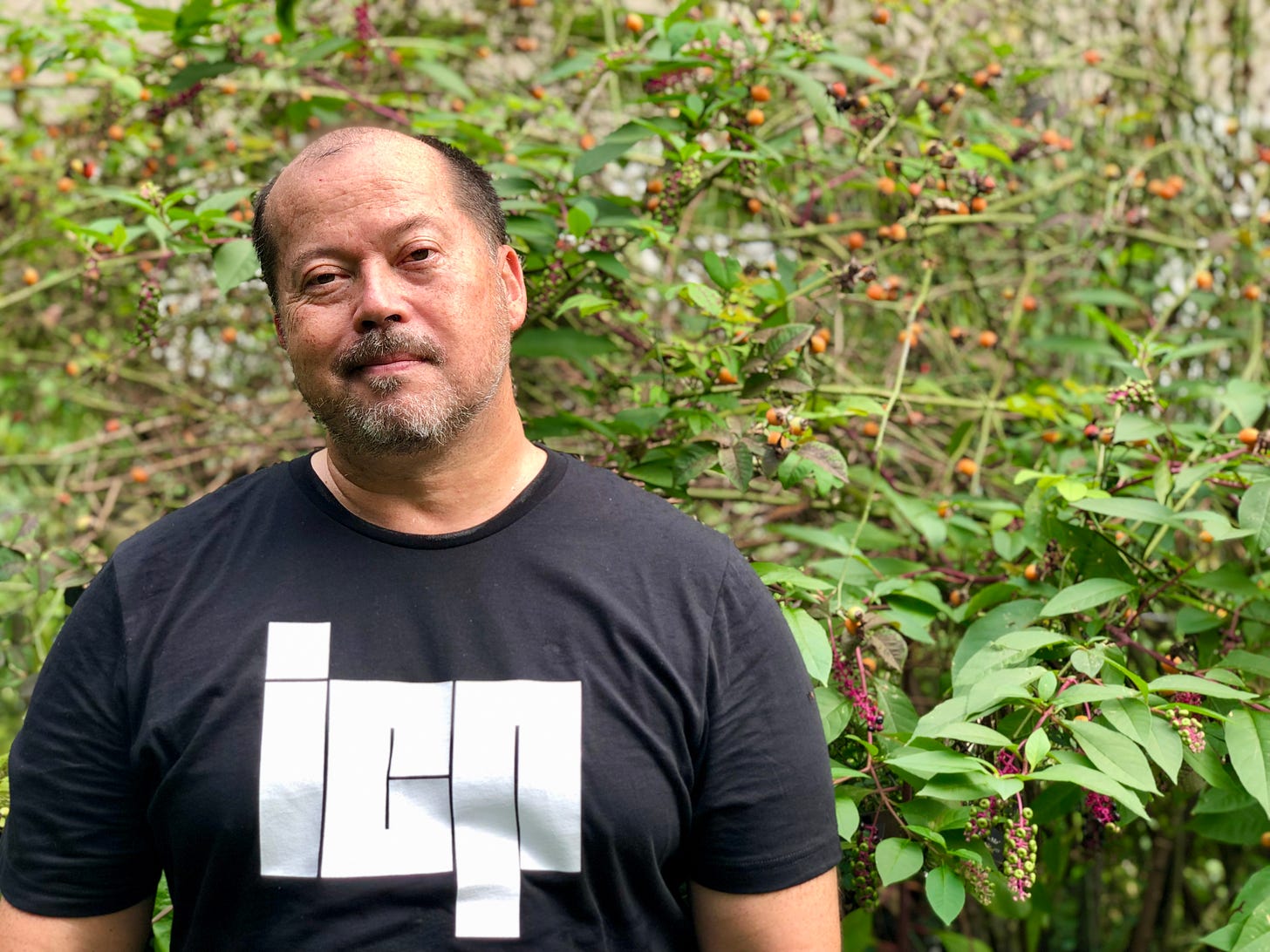


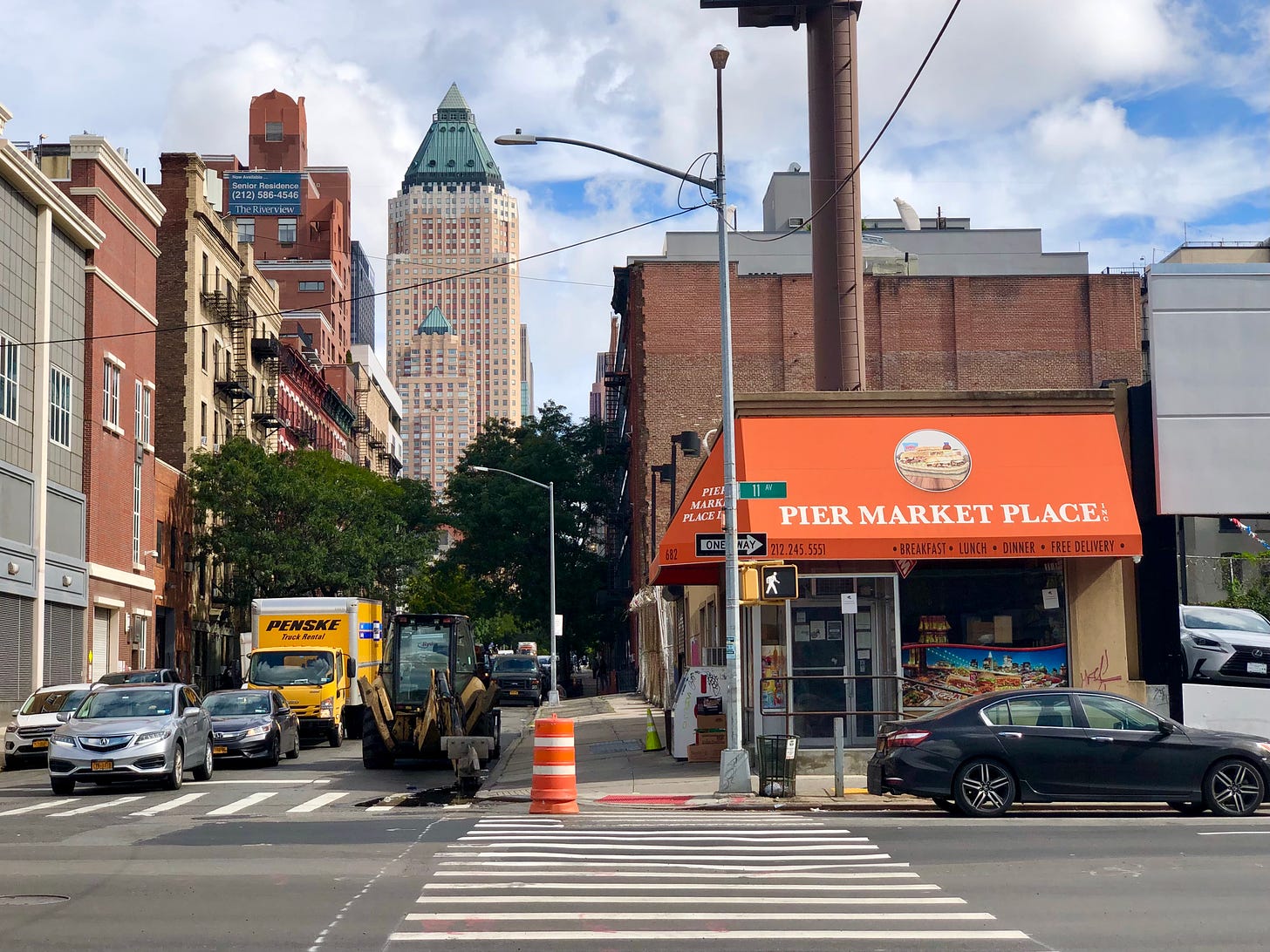
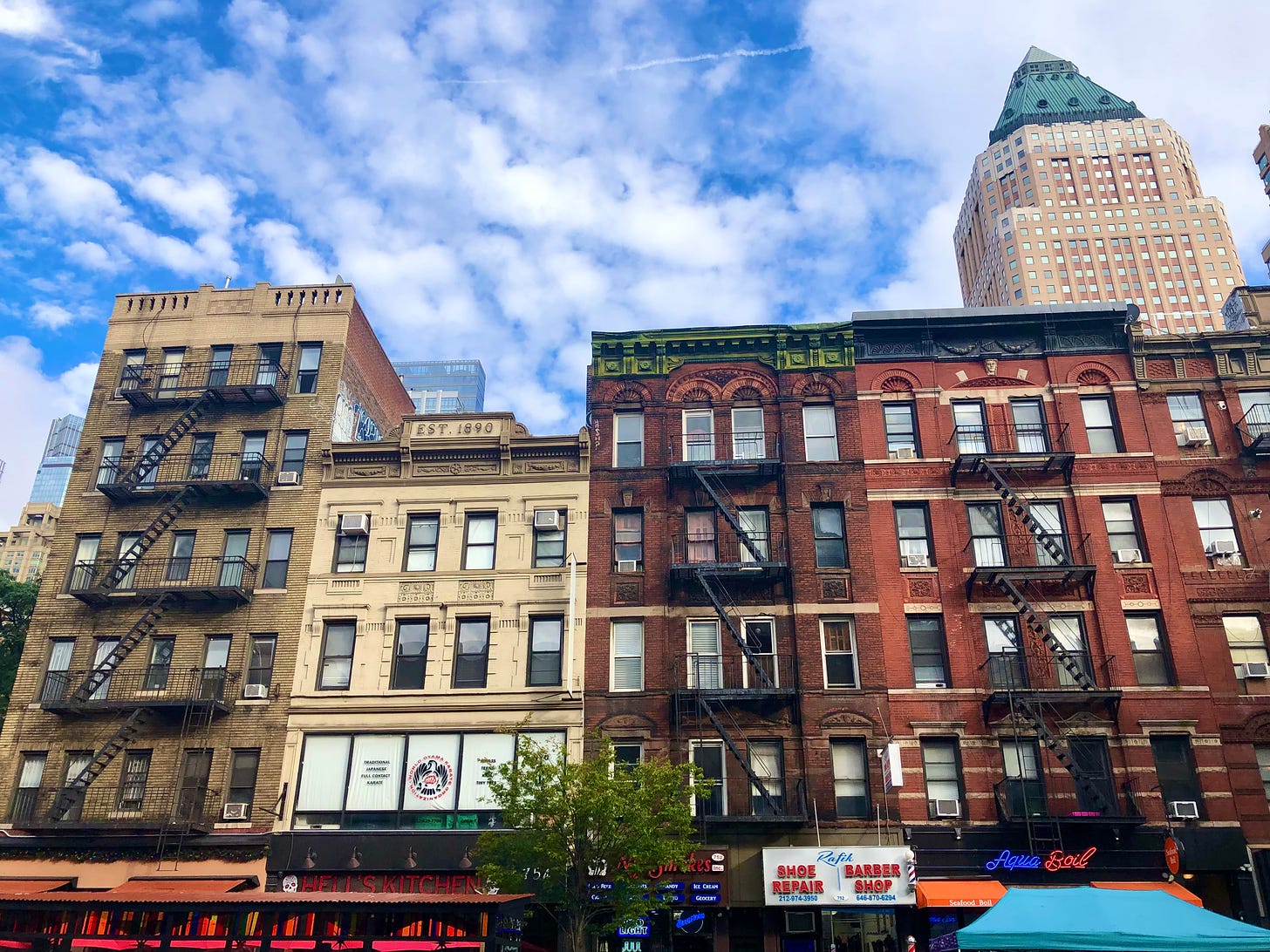
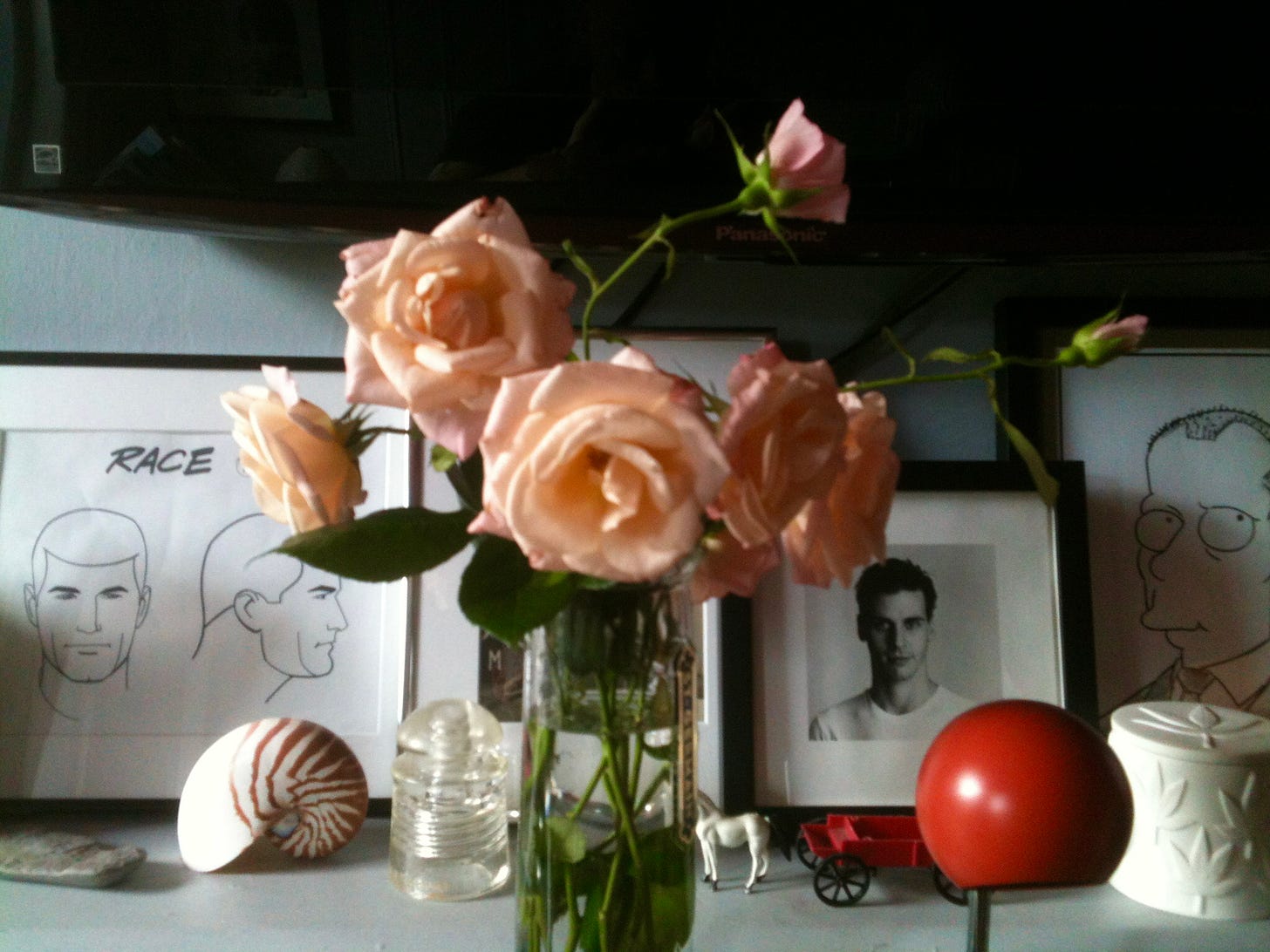
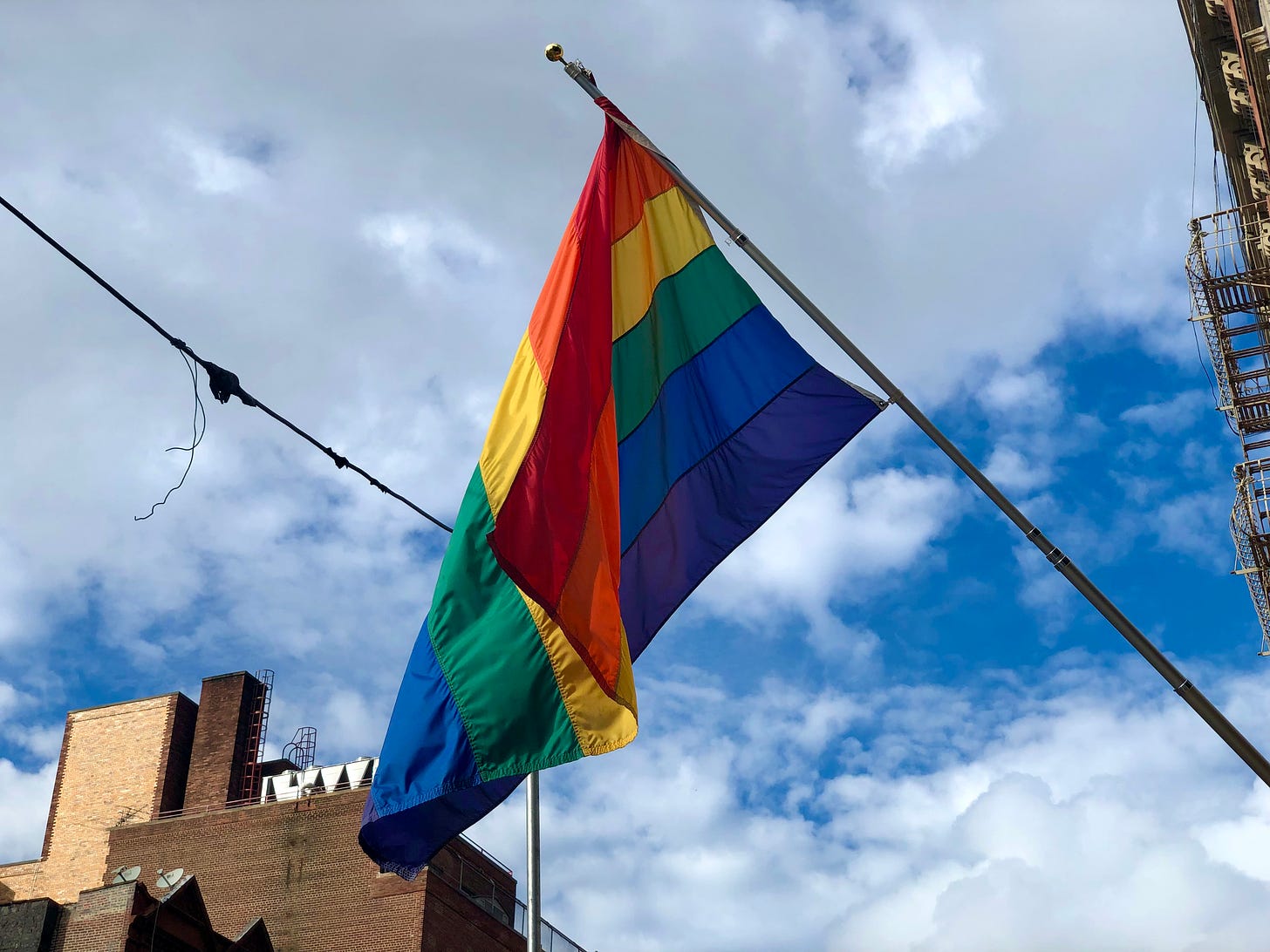

This was so lovely. I especially appreciated the part about how we can't "homework" our way out of most social issues and how be informed is a start but should never be the end of action in the community. As always thank you for sharing this with us Isaac
So much great stuff in here--thank you and Alexander for the resources to support anti-hate groups--but my favorite lines is "People love a go-go boy."